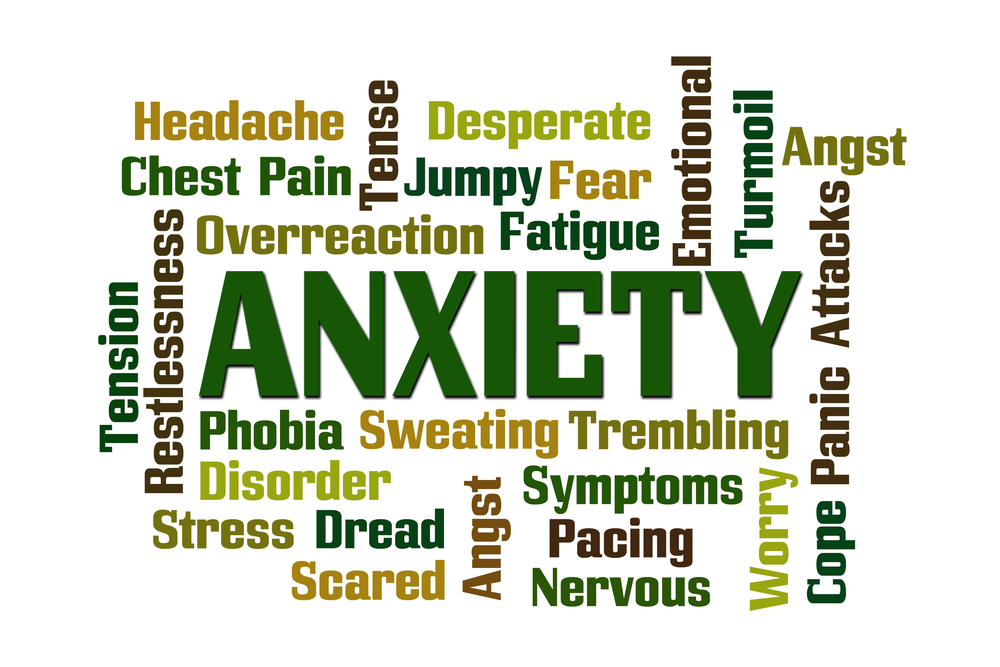Required
Why You Must Deal With Your Anxiety & Depression
Why You Must Deal With Your Anxiety & Depression
Back when I struggled with anxiety, I tried all that I could think of to find a solution that would help alleviate all those unpleasant thoughts and feelings. There would be times when things would ease a bit and I would think I was heading in the right direction, only for the anxiety to hit again and put me back at square one.
During those anxious moments I thought that there was something seriously wrong with me. Other people didn’t seem to go through this constant inner battle with themselves in their heads. Having tried every method I could think of myself, it took me quite some time to build the courage to seek help to overcome my anxiety. After all, how could I expect someone else to help me take away that ceaseless feeling of dread, of being uncovered as not being good enough or those nagging doubts about whether this was just something I had to learn to live with until my dying day?
With my focus on my anxiety from day to day, moment to moment and situation to situation, the last thing I had any mental space for was to think about how my anxiety might impact on my future health and well-being.
Yet recent research suggests that anyone struggling with anxiety or depression, even at low levels of distress, really should take action and seek help to deal with it sooner rather than later.
Depression, Anxiety & Health
Previous research has shown that clinical depression and anxiety are linked with the development of chronic diseases and increase the risk of incident arthritis, cardiovascular disease and chronic obstructive pulmonary disease.
However, until now the health effects of less severe symptoms of depression and anxiety have been less understood.

The research (reference at foot of article), published in the Journal of Psychosomatic Research, looked at a sample of 16,485 adults in the UK over a three year period. They concluded that.
“Psychological distress increases risk of incident arthritis, cardiovascular disease and chronic pulmonary disease…even at low and moderate distress levels.”
One of the authors, Professor Gale said,
“Our findings show that even low levels of distress, below the level usually considered clinically significant, appear to increase the risk of developing a chronic disease, so intervention to reduce symptoms of anxiety and depression may help to prevent the onset of these illnesses for some people.”
The study found that compared to people with no symptoms of distress, the chances of developing arthritis were 57% higher in those with low levels of distress, 72% higher in those with moderate levels and 110% higher in those with high levels.
For cardiovascular disease, compared to people with no symptoms of distress, the risk of developing this condition was 46% higher in those with low levels of distress, 77% higher at moderate levels and 189% higher in those with high levels, while for COPD the risk was only increased in those with moderate (125%) or high (148%) levels of distress.
So what does all this mean?
The link between certain conditions and high levels of psychological distress, such as clinical depression and anxiety, have been reported on before. This latest study suggests that the risk of those looked at conditions increases even at a lower level of psychological distress. Do remember though that these findings talk about an increased risk only (not a certainty) and that it is based upon the sample that was available to the researchers over a specific period of time.
There are always limitations in any study, although with these in mind, the conclusion is that psychological distress increases the risk of developing arthritis, COPD and cardiovascular disease.
What these findings do suggest though are that if you are struggling with depression, anxiety or stress, even at mild or moderate levels, then it is certainly a good idea to seek help sooner rather than later to learn how to manage, cope and deal with these issues. Thankfully it is possible to overcome these issues and alleviate that distress so rather than wait and hope for the best, seek out a professional source of help and do something about it right now.
To your happiness,
Dan Regan
Hypnotherapy in Ely & Newmarket
Struggling with anxiety, stress, worry and fear and need some help? Find out how I can help with a Complimentary Hypnotherapy Strategy Session. Learn more here: Appointments
Find out what dozens of other people have said after their hypnotherapy sessions with Dan: Hypnotherapy Testimonials
And check out these powerful hypnosis downloads that can start helping you right away with anxiety, confidence and more: Hypnosis Downloads
Reference: McLachlan, Kyle ; Gale, Catharine. / The effects of psychological distress and its interaction with socioeconomic position on risk of developing four chronic diseases. In: Journal of Psychosomatic Research. 2018 ; Vol. 109. pp. 79-85
Get Your Copy Right Now…
Subscribe to Dan’s Digest filled with tips, strategies and techniques and get instant access to your free rapid relaxation hypnosis audio track.
Enjoy feeling and being more mentally calm and physically relaxed right now:




0 Comments